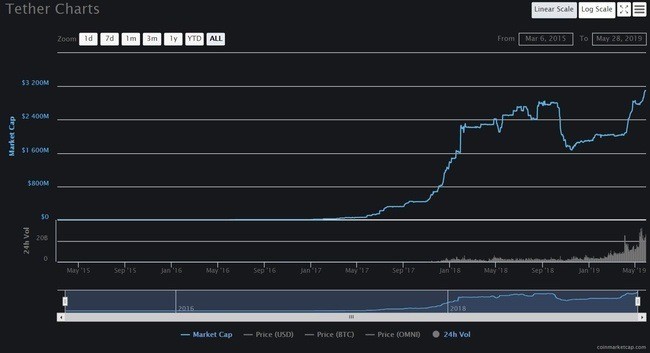To explain it in the simplest terms, Ethereum is a decentralized platform for running smart contracts. So, what does that mean? “Decentralized” refers to a system without any one person or group in charge, like a flock of birds which acts as a group despite having no designated leader. “Smart contracts” are like regular business or legal contracts except that instead of being defined by laws and enforced by courts, these digital contracts are defined and enforced by their own code. Smart contracts run just the way they are programmed, so provided they are programmed correctly, they operate without legal costs and with virtually zero possibility of any censorship, fraud, third party interference, or downtime. Ethereum was crowdfunded in the year of 2014 from its fans all over the world, and was developed by a Swiss nonprofit organization, the Ethereum Foundation, in collaboration with some of the greatest cryptocurrency minds from around the world. Vitalik Buterin, known for his early involvement in Bitcoin, is the most famous developer and thinker associated with Ethereum and the currency exists largely due to his pioneering efforts. Before talking about Ethereum in detail, knowing more about the three commonly used terms in the Ethereum environment will be helpful, so let us get into that:
Smart Contracts
As the name suggests, these are contracts but not in the way we normally think of a written contract requiring signatures. A smart contract is a computer _program which automatically executes the contractual code according to its ability to verify the fulfillment of contractual conditions. For example, a basic and common smart contract seen in Bitcoin, Ethereum, and almost all other cryptos is the multisig (“multiple signature”) contract. Crypto value is sent to an address controlled by the contract and only transferred if a pre-determined number of private keys held by the contract’s users sign off on the release of funds. This has many useful applications, such as enabling trustless online commerce between strangers who’ve never met via multisig escrow arrangements. With smart contracts, we’re looking at potentially replacing or at least reforming the existing legal system with an incorruptible and instant system of enforcing contracts, thus eliminating the risks of delayed payments and bringing down the risk of non-performance.
Blockchain
The Blockchain, being the most talked-about subject in Ethereum and other cryptocurrencies like Bitcoin, is nothing more than a distributed database. It has data records, is growing continuously and also is protected against any form of revision and tampering, even from its own operators. A blockchain, unlike traditional server architecture, does not go down if a single node is compromised or goes offline. The user data is pseudonomyous as generally no identity verification is required to use blockchain technology. Apps running on a blockchain can remain decentralized and therefore free from the control and censorship of governments or corporations, working just as the Internet was originally conceived, before the current era of Big Tech dominance.
Ethereum Wallet
The Ethereum wallet acts as a gateway for “Dapps,” or Decentralized Applications which run on the Ethereum Blockchain. An Ethereum wallet holds ether (ETH) which is the currency of Ethereum needed to access the blockchain’s functions.
We recommend using the Coinmama Crypto Wallet to safely store your Ethereum. It’s the safest option in the market and allows users in every part of the world to:
- Store, send, and receive Ethereum and Bitcoin. Additional coins will be supported in the near future.
- Buy Ethereum directly from Coinmama, and get your coins sent to your wallet instantly.
- Back up your private keys to your device and never worry about losing your funds.
What is Ethereum capable of?
With Ethereum, anyone can design and use his or her own cryptocurrency, which can further be used either as a currency or to represent a share or any asset amongst other things. With a standard API, the contract from these tokens will work with any kind of wallet, contracts or even exchanges. It can also help projects get funding through smart contracts.
Is the world accepting Ethereum?
For anyone familiar with Bitcoins, the hesitation that the public has in using it is obvious. This is what has been pushing Ethereum forward; not only as an alternate cryptocurrency but also as a new platform to build better products and applications. For instance, there are other projects in the crypto market cap top 10 that operate on Ethereum’s blockchain, such as Binance Coin, Chainlink, and a portion of the popular US Dollar-pegged stablecoin, Tether. Ethereum’s popularity and flexibility offer an easy entry point to anyone looking to implement a new crypto idea. This has made Ethereum the second most popular and valuable cryptocurrency after Bitcoin for many years running. Whereas Bitcoin specializes in being a reliable store of monetary value, Ethereum is geared more towards enabling new projects and ideas.
Conclusion
By now, anyone who was not _ familiar with Ethereum _ will have learnt enough to know _ what makes it not just another cryptocurrency, but a platform that can be used to drive change and innovation in the world. Coinmama is happy to announce its support in the Ethereum project. You can now buy Ethereum with credit / debit card or bank transfer through Coinmama! For more information about Ethereum visit https://ethereum.org/.




